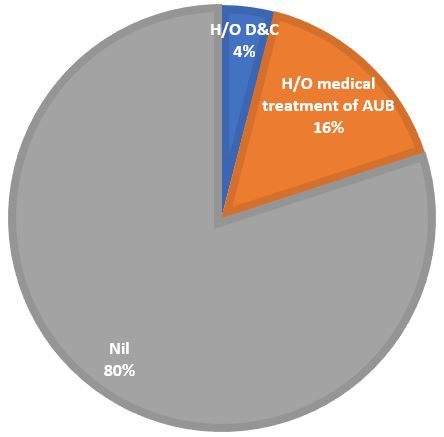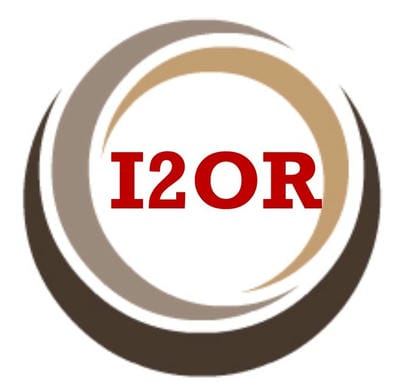Abnormal Uterine bleeding- Its Causes and Management in Women with Reproductive Age
Abstract
Introduction:Abnormal uterine bleeding (AUB) is a common reason for gynecological consultation in women with reproductive age. It is defined as bleeding from uterine corpus that is abnormal in regularity, volume, frequency or duration and occurs in absence of pregnancy.It makes the patient uncomfortable and hampers social, familial and religious life.
Methods: The present study was done to evaluate the cause and management of abnormal uterine bleeding in women with reproductive age. It was a cross sectional observational study which was carried out among 100 women of reproductive age admitted in the Obstetrics and Gynecology department of Cumilla Medical College Hospital. Study duration was 6 months, from January 2022 to July 2022. Patients were properly explained about the study and informed consent was taken. Analysis of these women is done by recording age parity, menstrual symptoms and treatment options. All specimens were sent for histopathology. Etiology, clinical presentation, histopathological findings and USG reports were correlated.AUB was classified according to PALM-COEIN classification. Data was collected in an organized data collection sheet. Standard statistical analysis was performed with the SPSS software package and the results were presented in the form of table, graphs, and diagrams.
Results: In this study most of the patients revealed common age group 31-40 years(50%) and most of them (64%) were belong to average economic conditions. 76% patient were multiparous. Heavy menstrual bleeding were common presentation (48%).8% patients were treated medically. Different operations done among them total abdominal hysterectomy done in 60% cases, no descent vaginal hysterectomy done in 12% cases, diagnostic dilatation and curettage done in 10% cases. As per PALM-COEIN classification AUB (L) was common type and most of the patients belong to PALM group (84%)
Conclusions: A systematic approach to diagnosis, investigation and a step wise approach to intervention is necessary. Treatment commencing with medical therapeutic modalities followed by surgical modalities is the ultimate goal of all therapeutic intervention.
Downloads
References
2. Diagnosis of abnormal uterine bleeding in reproductive –aged women.Practice Bulletin No.128.American College of Obstetricians and gynecologists. Obstet Gynecol 2012; 120:197-206.
3. Steve N.Abnormal uterine bleeding. In:ScottJR, GibbsRS, KarlonBY, HaneyAF. Danforth’s Obstetrics and Gynecology. 9thed. Lippincott Williams and Wilkins. 2003: p353-358.
4. National collaborating Centre for Women’s and Children’s Health; Natinal Institute for Health and Care Excellence. NICE guidelineCG44: heavy menstrual bleeding. London: Royal College of Obstetricians and Gynaecologists,2007.
5. Fraser IS, LanghamIs, Uhl- Hochgraeber K. Health- related quality of lifeand economic burden of abnormal uterine bleeding. Expert Rev ObstetGynecol.2009; 4:179-89.
6. Mary Ann Lumsden, JayMcGavigan. Menstruation and Menstrual disorder. In: robert W shaw,W. Patrick Soutter, Stuart L. Stauton.Gynaecology.3rd.ed. U.K, Churchill Livingston; 2003; 459-473.
7. Datta D.C. Abnormal uterine Bleeding. In: Hiralal Konar.Textbook of Gynaecology. 6th edition. New central book agency (P) Ltd, Kolkata. 2013. p178-180.
8. Kumar P., Mathotra N. editors. Cilinical Aspects of Menstruation and Ovulation. In: Jeffcoat’s Principles of Gynecology. 7th edition. Jaypee, Newdelhi. 2008. P598.
9. Kumar P., MathotraN.editors. Clinical Aspects of Menstruation and Ovulation. In: Jeffcoat’s Principles of Gynaecology.7thedition.Jaypee,Newdelhi.2008.p91.
10. Collins J, Crosignani PG. Endometrial bleeding. HumReprodupdate.2007Sep-Oct 13(5):421-31
11. Dueholm M, Lundorf E, Hansen ES, Ledertoug S, Olesen F. Evaluation of the uterine cavity with magnetic resonance imaging, transvaginal sonography, hysterosonographic examination, and diagnostic hysteroscopy. Fertisteril 2001; 76(2):350-7.
12. Breitkopf DM, Frederickson RA, Snyder RR. Detection of benign endometrial mass by endometrial stripe measurement in premenopausal women. ObstetGynecol 2004; 104(1):120-5.
13. Munro MG. Abnormal Uterine Bleeding. Cambridge: Cambridge University Press; 2010.
14. Albers JR, HullSK, Wesley RM. Abnormal uterine bleeding. Am Fam Phys.2004; 69:1915-1926.
15. Nichols CM, Gill EJ. Thermal baloon endometrial ablation for management of acute uterine haemorrhage. Obstet Gynecol 2002; 100:1092-4.
16. Deanna e, Draft Jakubovicz. Approach to diagnosis and management of abnormal uterine bleeding. CanFamPhysician2007; 53:58-64
17. Khan R, Sherwani RK, Rana S, Hakim S and Jairajpuri, Z.S. (2016). Clinicopathological patterns in women with dysfunctional uterine bleeding. Iranian journal of Obstetrics and Gynaecology of India,61(4),426-430.
18. Nargis N, KarimI, Sarwar KB. Abnormal uterine bleeding in perimenopausal age: different causes and its relation with histopathology. Bangladesh journal of Medical Science. 2014;13(2):135-9
19. Pinzauti S, Lazzeri L, Tosti C,et al.: Transvaginal sonographic features of diffuse adenomyosis in 18-30 year- old nulligravid women without endometriosis: association with symptoms. Ultrasound ObstetGynecol.2015;46(6):730-6.
20. Dawood MY: Primary dysmenorrhea: advances pathogenesis and management. Obstet Gynecol. 2006;108(2):428-41
21. Wong CL, Farquhar C, Roberts H,etal.:Oral contraceptive pill for primary dysmenorrhea. Cochrane Database SystRev.2009;(4):CD002120.
22. Iacovides S, Avidon I, Baker FC: What we know about primary dysmenorrhea today: article review. Hum ReprodUpdate.2015;21(6):762-78.
23. Jeffcoate's Principles of Gynaecology(9th edition).
24. Hafiz R, Ali M, Ahmad M. Fibroidas a causative factor in menorrhagia and its management. Pakistan J Med Res 2003; 42:3.
25. Albers JR, Hull SK, Wesley RM. Abnormal uterine bleeding. Am FamPhys;2004; 69:1915-1926.'

Copyright (c) 2025 Author (s). Published by Siddharth Health Research and Social Welfare Society

This work is licensed under a Creative Commons Attribution 4.0 International License.


 OAI - Open Archives Initiative
OAI - Open Archives Initiative



















 Therapoid
Therapoid

